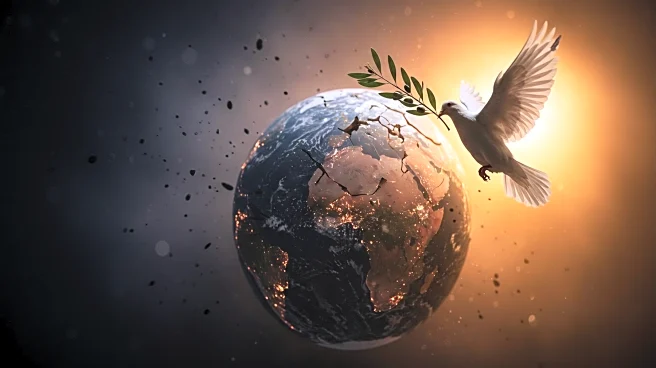What's Happening?
A United Nations-backed initiative has confirmed that parts of Gaza are experiencing famine, with the situation expected to worsen. The report by the Integrated Food Security Phase Classification (IPC) highlights severe malnutrition affecting 132,000 children under five, with 41,000 cases considered severe. The famine is occurring amidst a prolonged conflict, with Israel restricting aid entry to the region. The Gaza Humanitarian Foundation, backed by the US and Israel, has faced criticism for its handling of aid distribution, with reports of deaths at distribution sites. The Israeli agency COGAT has rejected the IPC report, claiming it relies on biased data from Hamas and overlooks humanitarian efforts in Gaza.
Why It's Important?
The confirmation of famine in Gaza underscores the dire humanitarian crisis in the region, exacerbated by ongoing conflict and restricted access to aid. The situation poses significant risks to vulnerable populations, particularly children, and highlights the challenges faced by international organizations in providing relief. The report's findings may influence international diplomatic efforts and humanitarian aid strategies, as stakeholders seek to address the crisis and prevent further deterioration. The rejection of the report by Israeli authorities points to ongoing tensions and differing narratives regarding the humanitarian situation in Gaza.
What's Next?
The humanitarian crisis in Gaza is likely to prompt increased international attention and calls for action. Efforts to negotiate aid access and address the root causes of the conflict may intensify, with potential involvement from international organizations and governments. The situation may also lead to further scrutiny of the Gaza Humanitarian Foundation and its role in aid distribution. Stakeholders will need to navigate complex political dynamics to ensure effective humanitarian response and support for affected populations.









